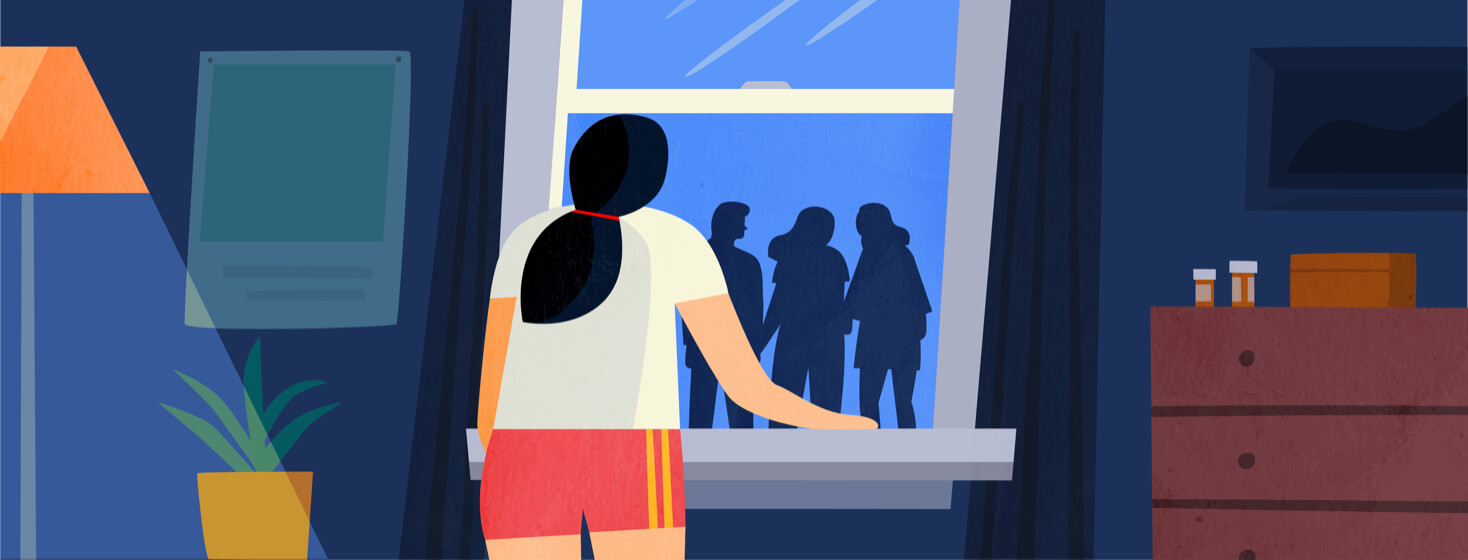Maintaining Friendships as a Young Adult with Psoriatic Arthritis
I find myself struggling socially now than I did at any other age. There are times when being a working young adult with psoriatic arthritis can be totally isolating.
Even though I've been chronically ill since childhood, I found it was so much easier to maintain relationships back in high school and college. I used to always be around friends, hanging out in class and our dorms. I also had a summer vacation to work part-time, relax on my days off, and hang out with friends in the evening.
Featured Forum
View all responsesPriorities, priorities, priorities
Becoming a working adult has changed things drastically. I'm no longer around my friends all the time: my life almost completely revolves around working and resting to recover from work. It's also transformed weekends and holidays from times to party to times to unwind and do whatever chores I can handle.
I find it hard to find the energy to go out and see others when 99% of my energy goes into working and caring for my health.
Unfortunately, juvenile-onset psoriatic arthritis forces me to prioritize my life. Often, it only lets me pick a handful of priorities- which usually are my health, my career, my partner, and my family. There are weeks when outings or visiting can quickly push me over the edge.
Tips for maintaining friendships
Sometimes, I think other young adults (friends and potential friends) have a hard time comprehending how limiting arthritis can be. Because they see me going to work, they assume I'm okay to do most other activities. But they don't see me crash as soon as I come home.
It can make it hard for them to understand why I can't hang out on the drop of a dime or do any activity they suggest. While I haven't been a working adult for a long time, I have found a few ways that make it easier to be social.
These tips help me to feel less isolated without totally draining my energy. They also help me to maintain my friendships in ways that work for both people:
Tip 1: Suggest plans you can commit to
One of my most important suggestions is to be proactive in making plans. When others are thinking of getting together soon, recommend a fun activity that is ideal for you.
For example, I'll suggest using my apartment as a gathering spot for a game or movie night. I offer to get a pizza or Chinese food delivered. It relieves my anxiety knowing I won't spend all my energy traveling. And it's comforting having my supplies, mobility aids, medications, and slippers on hand.
Don't be afraid to say no! If people want to go out, I like to suggest going out to eat, seeing a movie, and other less intense activities. Unfortunately, many things friends my age like to do, such as going out dancing, bar-hopping, and attending group exercise classes, aren't options for me right now.
Whenever my group decides to do these activities, I let them know that I won't be going but that I hope they have fun. Sometimes, I need to sit out, and that's okay- real friends understand.
Tip 2: Take the initiative
Having an unpredictable disease that can mean you may need to cancel more often than others. It takes a toll on your heart to miss out and feel unreliable (even though you're not). It can also lead to you being invited out less and less over time. For that reason, every so often, I put out an invitation to have others over.
I try to have a board game night at my house every other month with friends and ask everyone to bring a favorite game and snacks. I think people appreciate the invitation even if they can't make it, and it helps maintain our friendships. Though I've had to power through some of those nights, it was always worth it in the end.
Make alternative plans! There have been times when in-person visits were not possible. Over the summer, my friends and I made a 'podcast club.' Every few weeks, we all got on a group call to discuss a podcast we all listened to. It was great!
If you find leaving the house or constant interaction draining, I highly recommend starting a club and scheduling group calls for an hour or so every few weeks.
Tip 3: It's not just you, texting can be draining
Ever feel too tired to even text? You're not alone. A lot of people with chronic fatigue feel drained from constant text conversations. It can be hard to always feel 'on,' having to reply constantly and come up with something interesting to say.
It's even harder if you're suffering brain fog or find it painful to type. If you feel guilty for not keeping up with texts, make sure to reassure your friends that you still want to chat with them.
Communicate! Try to come up with methods of communication that works better. I much prefer a phone call once a month to a million text messages. Different things work for different people!
Sometimes, friendships don't work out.
It's painful, but there may be times it's okay to let go of relationships when they don't seem very understanding. Or, you may have the unfortunate experience of being ghosted by friends after awhile.
While I encourage you always to try to talk with your friend to help them understand, sometimes you need to move on for the sake of your emotional health.
Over the years, I've made and lost many friends. But I can say that real friends stick around. As a young adult with arthritis, I don't have a large group of friends. But the friends I do have, both in-person and online, are genuine and I wouldn't trade them for the world.

Join the conversation